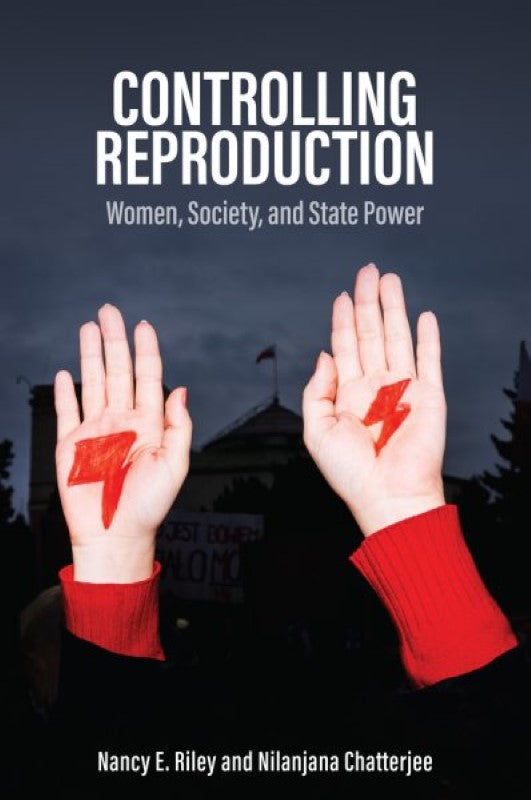Description
Controlling Reproduction is a critical exploration of who has the power to decide on parenthood—when, how many, and under what circumstances. This essential title delves into the significant implications of reproductive control for states, communities, families, and individuals worldwide. Recognizing that control over reproduction is an extraordinarily influential tool, authors Nancy Riley and Nilanjana Chatterjee investigate the intricate dynamics at play in different societies.
This compelling book examines how various social institutions, including the state, religion, markets, and family, engage in the negotiation of reproductive power. Utilizing real-world examples from multiple countries, such as China's direct fertility policies, the Catholic Church's sway in Poland and Brazil, and the impacts of racial discrimination in Mexico and the US, the authors reveal how reproduction is influenced on a global scale. Additionally, they cover how nations like Japan and Norway employ legislation aimed at promoting gender equality, which indirectly affects reproductive choices.
Controlling Reproduction not only sheds light on the intersection of power, gender, and societal norms but is also a crucial text for students in sociology, anthropology, and gender studies. With its comprehensive analysis and insightful perspectives, this book enhances the understanding of the ongoing debates surrounding reproductive rights and agency in today's world.
Note: Shipping for this item is free. Please allow up to 6 weeks for delivery. Once your order is placed, it cannot be cancelled. Condition: BRAND NEW. ISBN: 9781509539918. Year: 2023. Publisher: John Wiley & Sons (UK).
Note: Shipping for this item is free. Please allow up to 6 weeks for delivery. Once your order is placed, it cannot be cancelled..
Condition: BRAND NEW
ISBN: 9781509539918
Year: 2023
Publisher: John Wiley & Sons (UK)
Description:
Controlling reproduction “ who has children, how many, and when “ is important to states, communities, families, and individuals across the globe. However, the stakes are even higher than might at first be appreciated: control over reproduction is an incredibly powerful tool.
Contests over reproduction necessarily involve control over women and their bodies. Yet because reproduction is so intertwined with other social processes and institutions, controlling it also extends far into most corners of social, economic, and political life. Nancy Riley and Nilanjana Chatterjee explore how various social institutions beyond the individual “ including state, religion, market, and family “ are involved in the negotiation of reproductive power. They draw on examples from across the world, such as direct fertility policies in China and Romania, the influence of the Catholic Church in Poland and Brazil, racial discrimination and resistance in Mexico and the US, and how Japan and Norway use laws intended to encourage gender equality to indirectly shape reproduction.
This engaging book sheds new light on the operations of power and gender in society. It will appeal to students taking courses on reproduction in departments of sociology, anthropology, and gender studies.
This compelling book examines how various social institutions, including the state, religion, markets, and family, engage in the negotiation of reproductive power. Utilizing real-world examples from multiple countries, such as China's direct fertility policies, the Catholic Church's sway in Poland and Brazil, and the impacts of racial discrimination in Mexico and the US, the authors reveal how reproduction is influenced on a global scale. Additionally, they cover how nations like Japan and Norway employ legislation aimed at promoting gender equality, which indirectly affects reproductive choices.
Controlling Reproduction not only sheds light on the intersection of power, gender, and societal norms but is also a crucial text for students in sociology, anthropology, and gender studies. With its comprehensive analysis and insightful perspectives, this book enhances the understanding of the ongoing debates surrounding reproductive rights and agency in today's world.
Note: Shipping for this item is free. Please allow up to 6 weeks for delivery. Once your order is placed, it cannot be cancelled. Condition: BRAND NEW. ISBN: 9781509539918. Year: 2023. Publisher: John Wiley & Sons (UK).
Note: Shipping for this item is free. Please allow up to 6 weeks for delivery. Once your order is placed, it cannot be cancelled..
Condition: BRAND NEW
ISBN: 9781509539918
Year: 2023
Publisher: John Wiley & Sons (UK)
Description:
Controlling reproduction “ who has children, how many, and when “ is important to states, communities, families, and individuals across the globe. However, the stakes are even higher than might at first be appreciated: control over reproduction is an incredibly powerful tool.
Contests over reproduction necessarily involve control over women and their bodies. Yet because reproduction is so intertwined with other social processes and institutions, controlling it also extends far into most corners of social, economic, and political life. Nancy Riley and Nilanjana Chatterjee explore how various social institutions beyond the individual “ including state, religion, market, and family “ are involved in the negotiation of reproductive power. They draw on examples from across the world, such as direct fertility policies in China and Romania, the influence of the Catholic Church in Poland and Brazil, racial discrimination and resistance in Mexico and the US, and how Japan and Norway use laws intended to encourage gender equality to indirectly shape reproduction.
This engaging book sheds new light on the operations of power and gender in society. It will appeal to students taking courses on reproduction in departments of sociology, anthropology, and gender studies.

